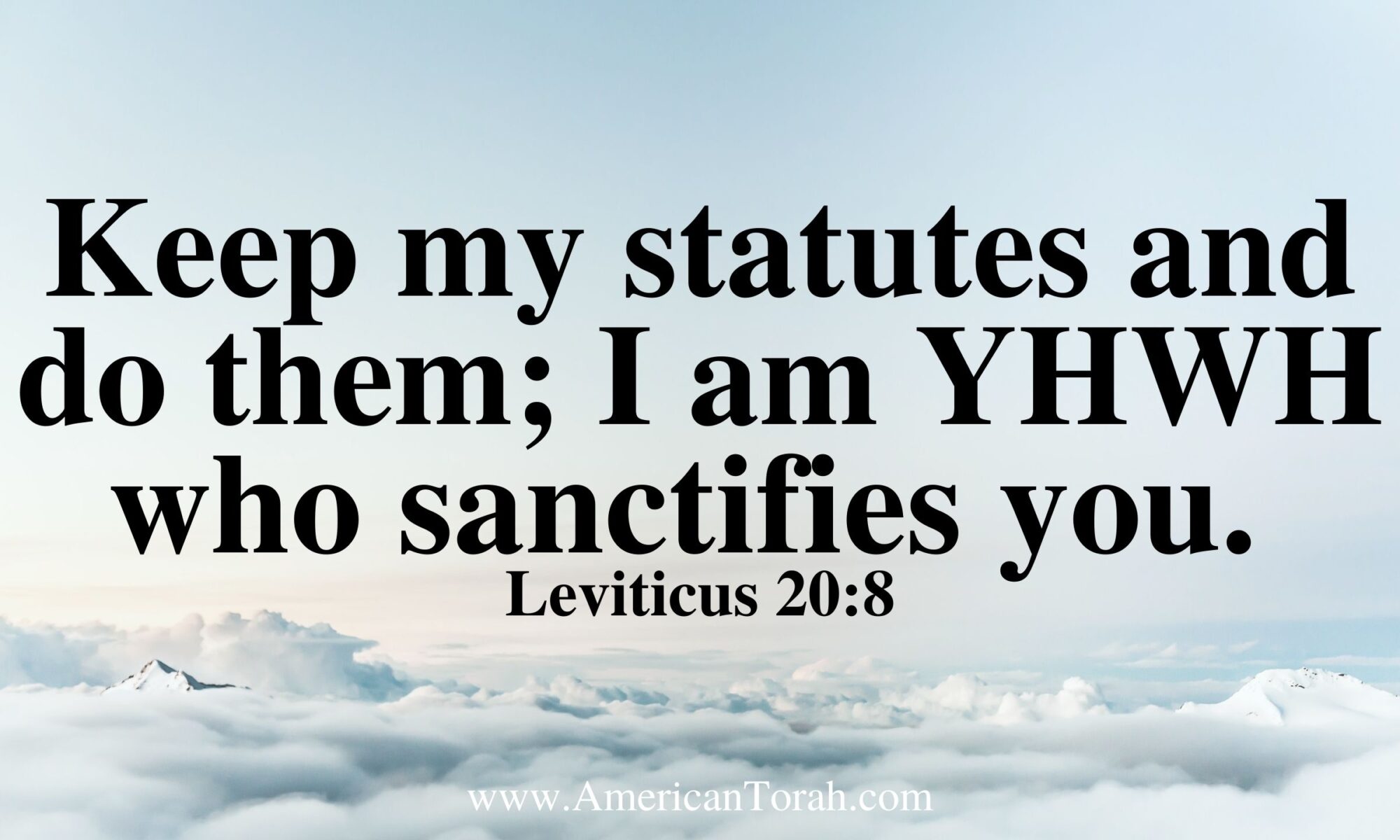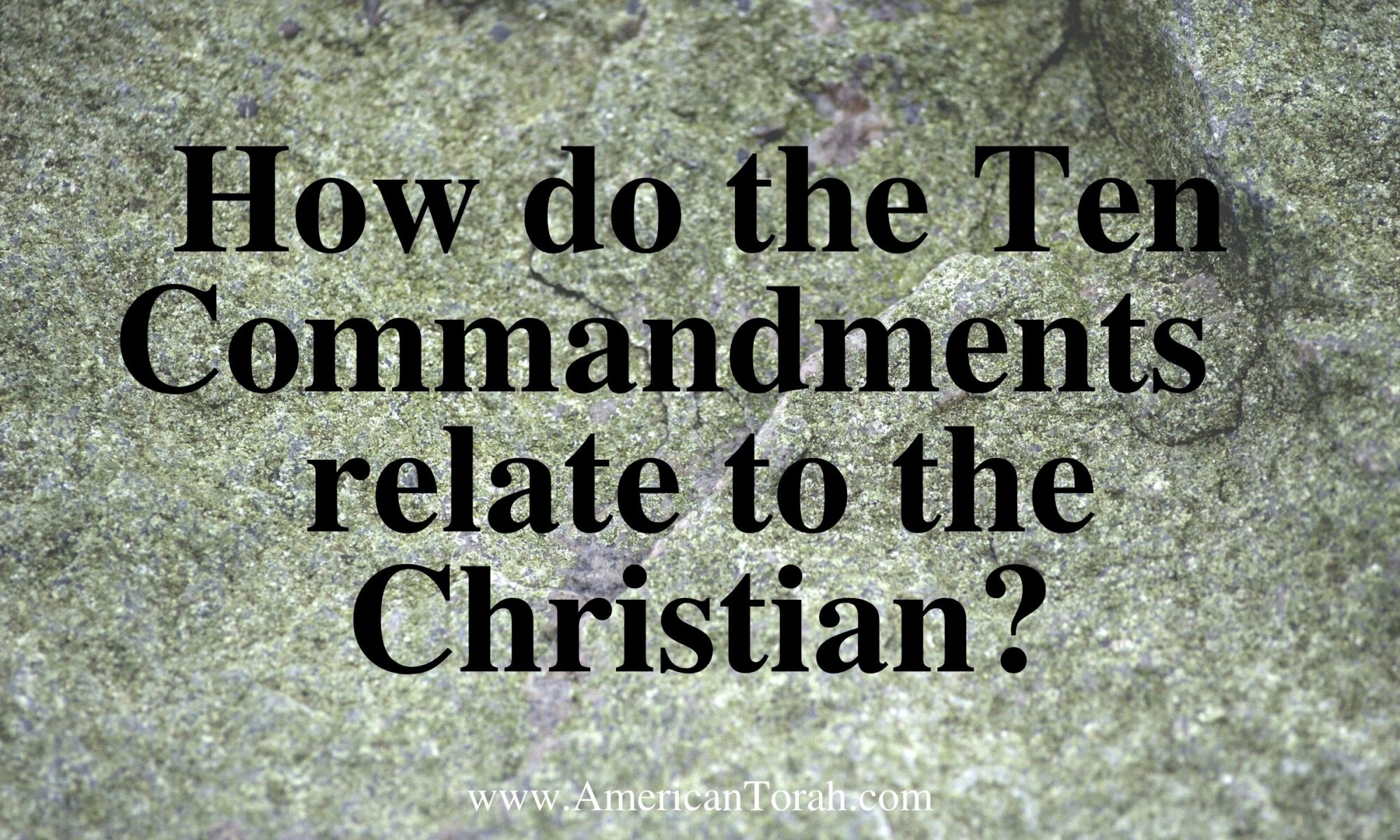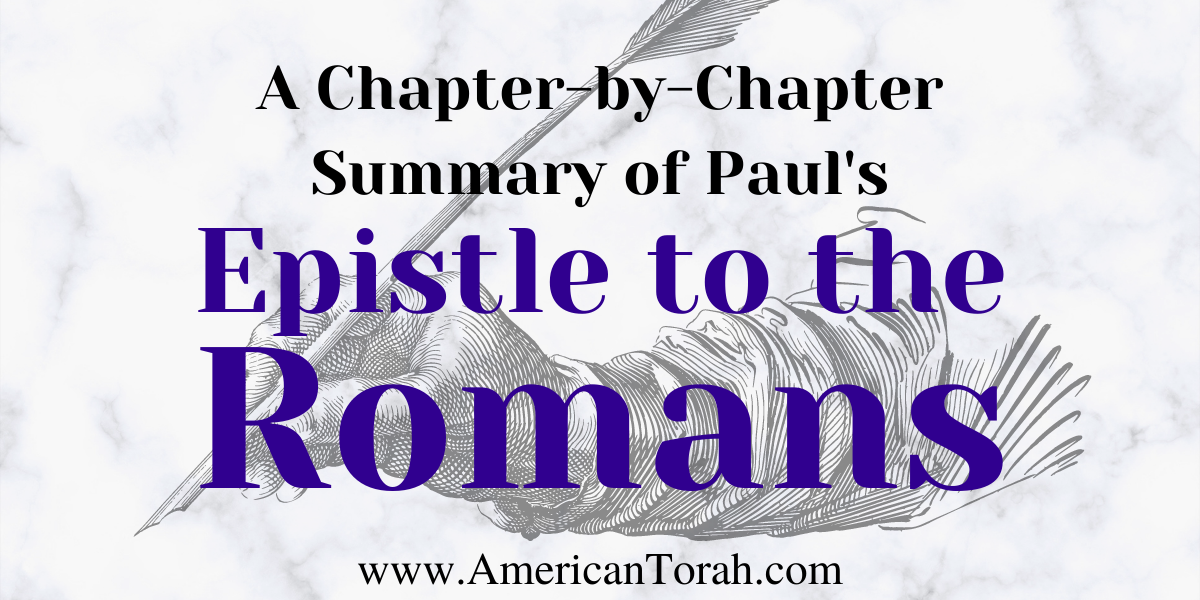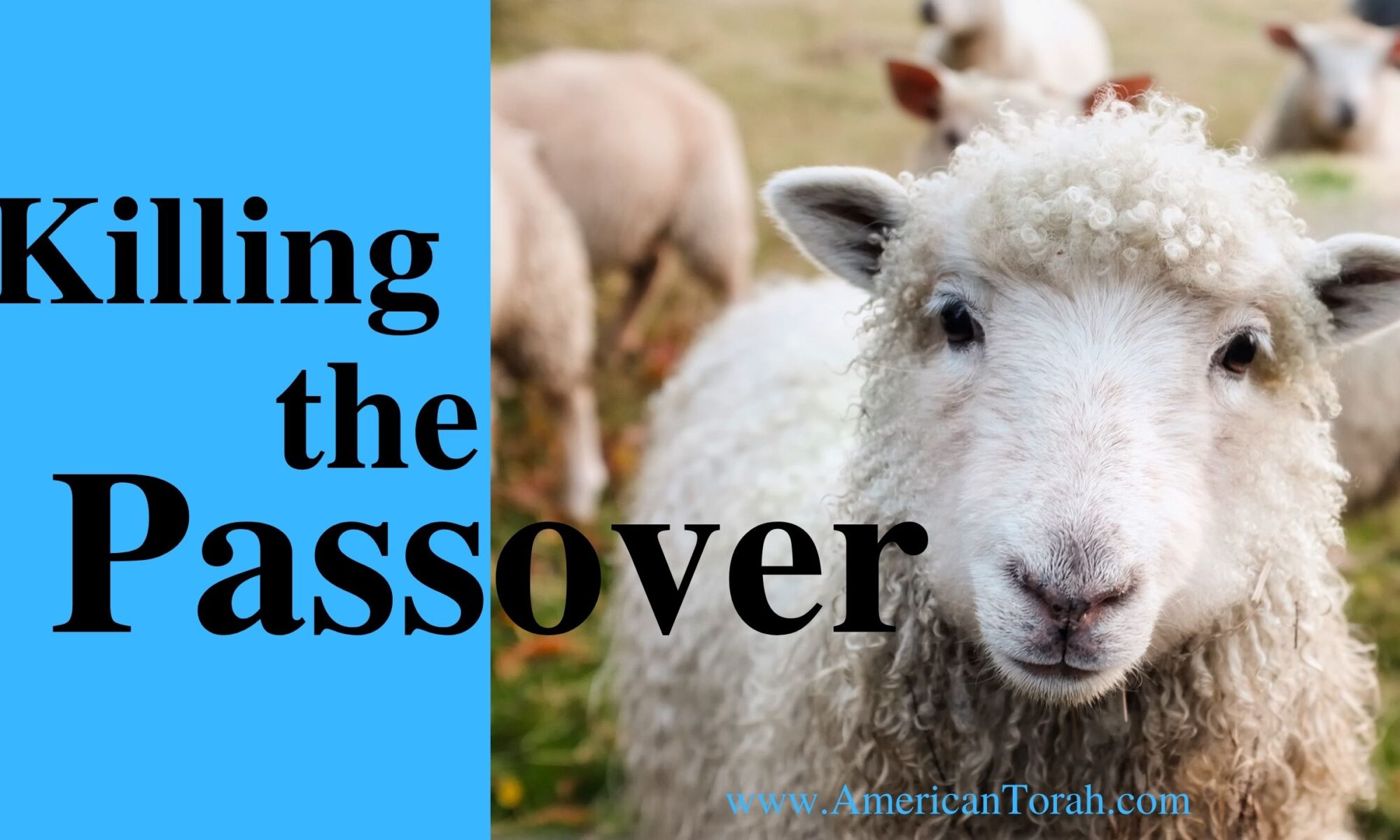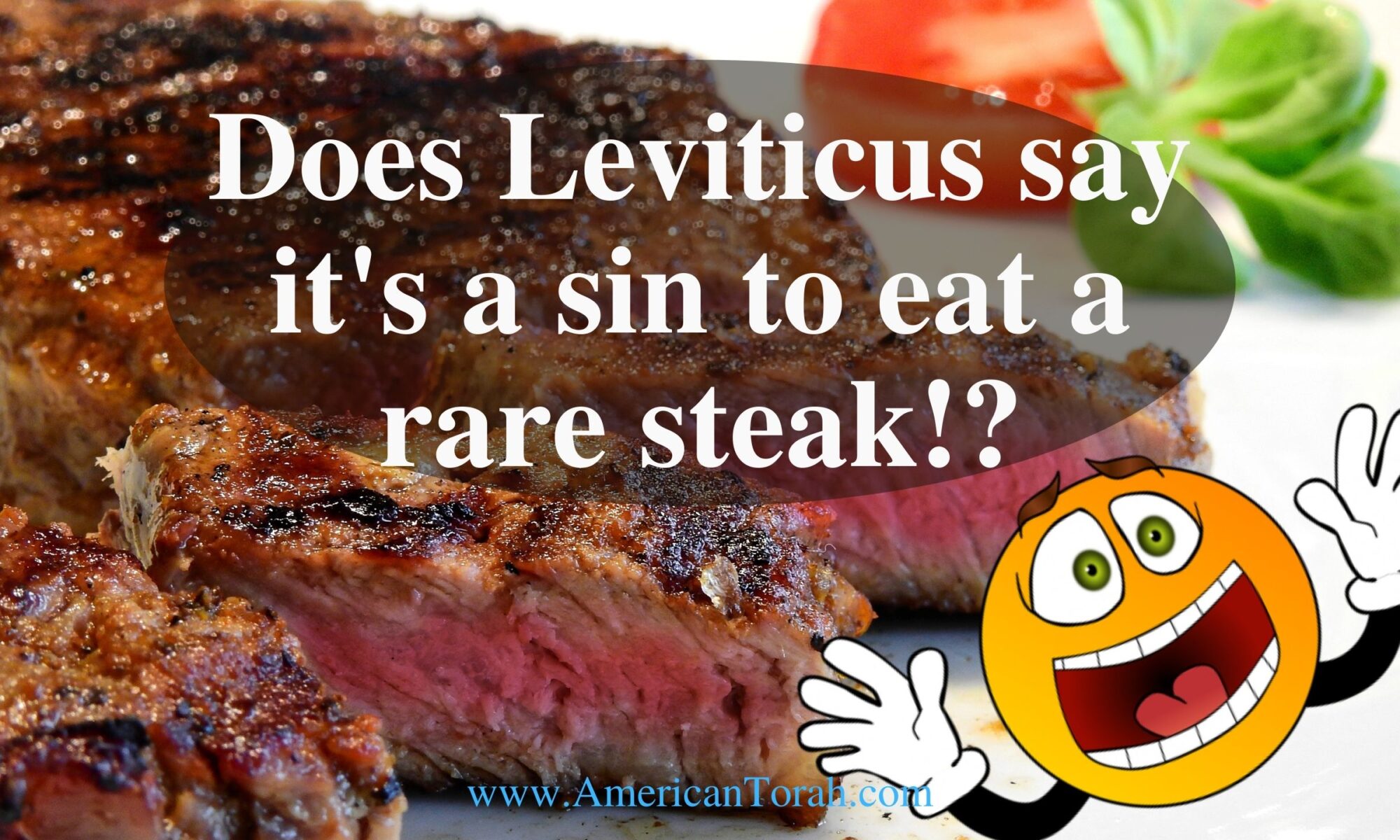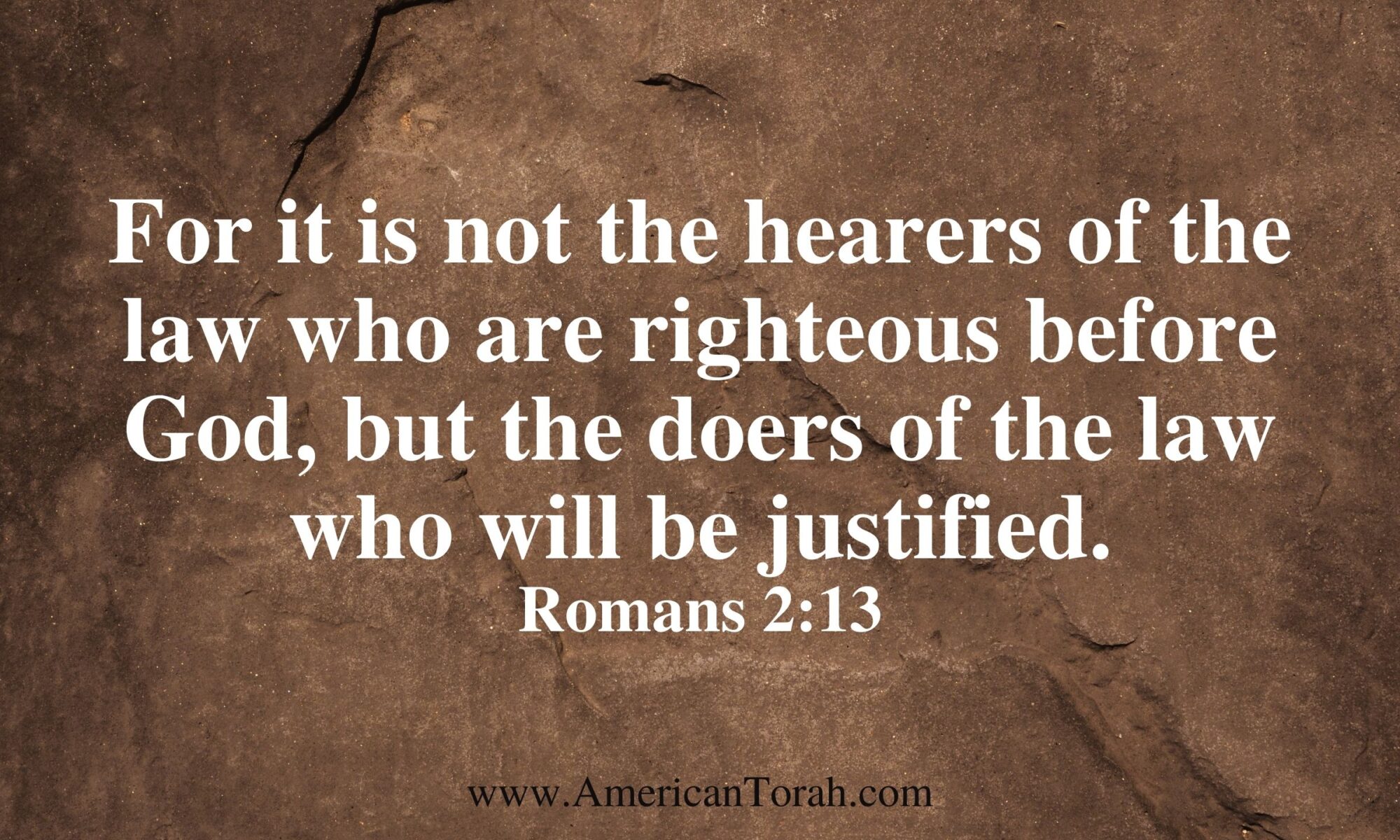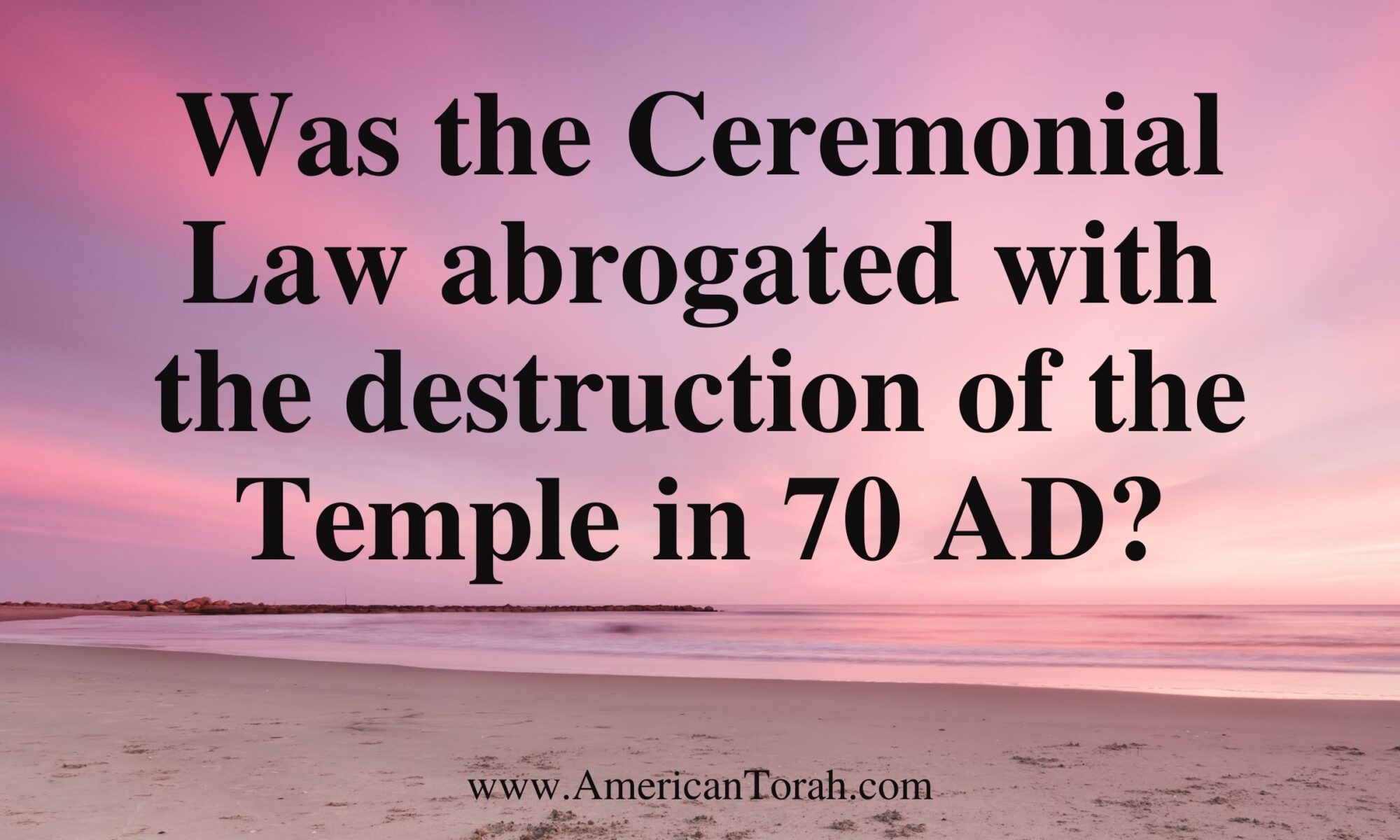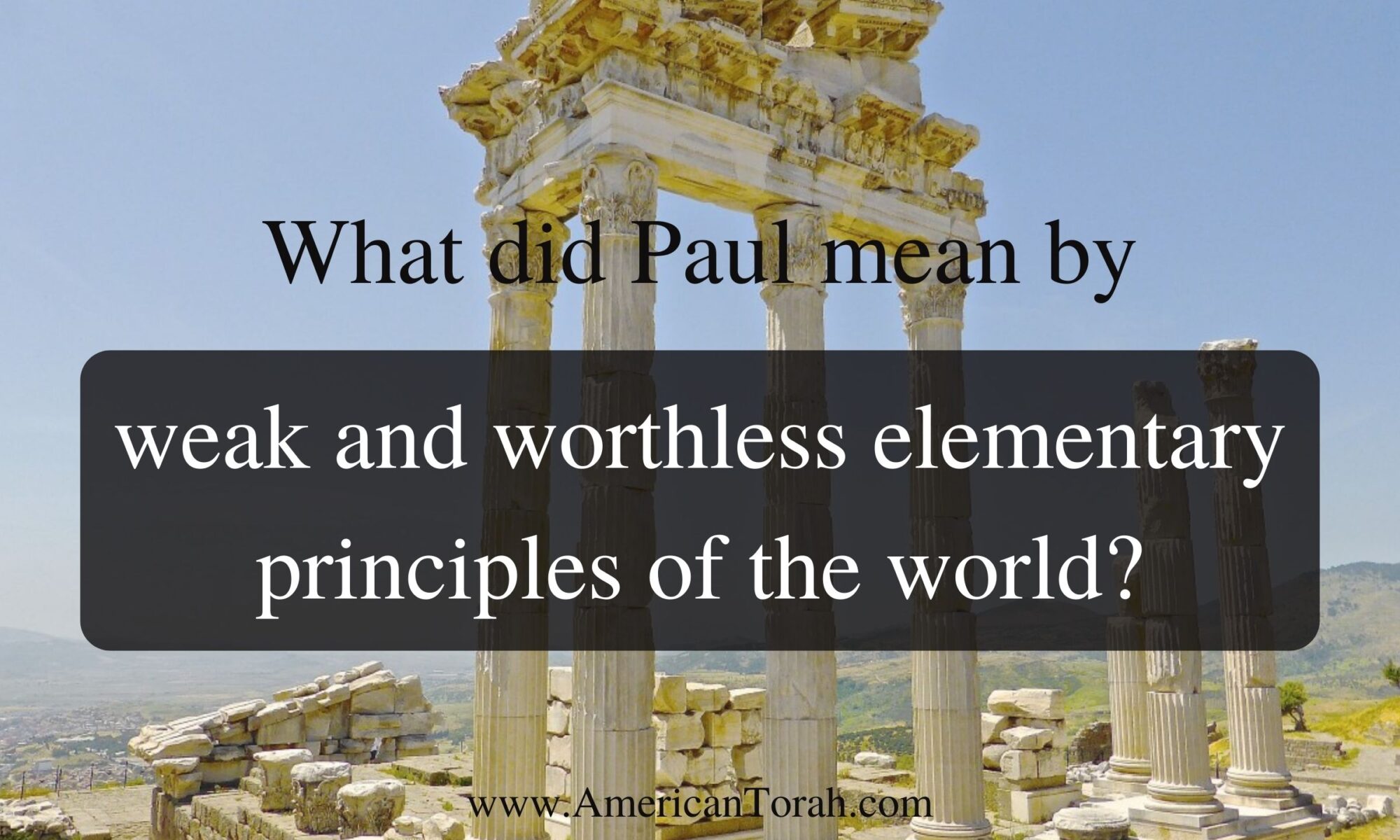Whenever I tell someone that we keep Passover as a Christian, I expect them to ask if I sacrifice a lamb. Sometimes, they actually do ask. Other times, I think I can see them wanting to ask, even if they don’t. Let me put your mind at ease.
No, I don’t sacrifice a lamb. I don’t even kill one.
Technically speaking, that means we don’t really keep Passover, because in Biblical usage, the lamb is the Passover. What we really do is a memorial of Passover, called a seder, which itself is a memorial of the original Passover in Egypt. We usually gather with several other families and read an abbreviated Passover Hagaddah that has been modified to emphasize the prophetic and messianic symbolism of Passover. We have a large meal, including most of the traditional Passover foods (matzah, horseradish, charoset, etc), in addition to lamb and other dishes.
Even though we usually have lamb at our seder, it’s not a real Passover because the lamb wasn’t killed specifically for that purpose. It’s just grocery store lamb. If we were in Jerusalem, we might do things differently.
Let me tell you why that might make a difference, and as I do, please keep in mind that, although everything I write is based in Scripture, it is my own interpretation and I am not always correct. I always reserve the right to be wrong and to change my mind at a later date. 😉
The Victim
In this manner you shall eat [the lamb]: with your belt fastened, your sandals on your feet, and your staff in your hand. And you shall eat it in haste. It is the LORD’s Passover.
Exodus 12:11
Throughout the Old Testament, the term “Passover” (pesach in Hebrew) refers to the lamb, not to the day, the week, nor any other part of the meal.
Your lamb shall be without blemish, a male a year old. You may take it from the sheep or from the goats…
Exodus 12:5
The Passover must be an unblemished, male yearling, either a sheep or a goat.
A goat?
Yep. We almost always speak of a Passover lamb, but the Passover can also be a goat.
“Without blemish” means that it must have no scars, no injuries or past broken bones, no defective parts, and no illnesses. Rabbinic tradition has a long list of characteristics that qualify as blemishes, many of which I’m sure would be familiar to judges in best-of-breed contests at dog shows and county fairs.
“A year old” probably doesn’t mean what you think. The ancient Hebrews counted their days and years differently than we do. The Hebrew for “a year old” is ben shanah, which literally means “son of a year”, and really means that it must be within the first year of life. We usually count our age by the years we have passed, but the Biblical pattern is to count age by the year you are in. A Passover must have been born sometime after the previous year’s Passover. I believe the rabbinical standard is that the lamb must be at least a few weeks old and preferably already weened.
The Scene
And you shall kill the Passover to YHWH your God, from the flock or the herd, at the place that YHWH will choose, to make his name dwell there.
Deuteronomy 16:2
‘Since the day that I brought my people out of the land of Egypt, I chose no city out of all the tribes of Israel in which to build a house, that my name might be there, and I chose no man as prince over my people Israel; but I have chosen Jerusalem that my name may be there, and I have chosen David to be over my people Israel.’
2 Chronicles 6:5-6
Once the Tabernacle had been completed in the Wilderness, God told the Israelites that they must stop slaughtering animals anywhere except at the Tabernacle (Leviticus 17:3-4) to get them out of the habit of performing their own sacrifices independently of the priests whom God had appointed. However, he also told them that, once they were in the land, they could resume slaughtering animals for meat wherever they lived, but they had to bring all sacrifices to one specific place where he would “make his name to dwell” (Deuteronomy 12:13-15).
In Jerusalem, Not Just at the Temple
It took a few centuries, but eventually God designated Jerusalem as that place. Since the time that King David brought the Ark of the Covenant to the Holy City, it has been the only place on earth that God allows sacrifices.
Unlike other sacrifices, though, and contrary to popular opinion, the Passover does not need to be killed at the Temple. Deuteronomy 16:5-6 says that the Passover may only be killed “at the place that YHWH your God will choose”, which sounds like it’s talking about the Temple. However, verse 7 says that it may also only be cooked and eaten at the same place.
According to Josephus, more than 250,000 Passovers were killed in Jerusalem within a few hours in one afternoon. I suspect that number might be an exaggeration, but it seems nearly impossible for even half that many to be killed so quickly at the Temple. How much greater would be the difficulties in all the people remaining there on the grounds to cook and eat their Passovers! So much greater, in fact, that it would be completely impossible. There is simply no way to fit potentially millions of people into the Temple grounds at the same time, which is what would be required if “the place that YHWH chooses” is limited to the Temple.
Whatever the Jews were actually doing in the first century, God’s instructions for Passover requires the lamb to be killed at Jerusalem, but not necessarily at the Temple.
Has the Place of God’s Name Changed?
I have heard the argument that the place where God would put his name has changed since Yeshua’s resurrection, namely that the place is now in us, so that the Passover can be killed wherever we are. However, if the place has become purely metaphorical and not an actual place, then I think the Passover and all other sacrifices must also become purely metaphorical.
There is some truth in that. We have no Temple, no altar, and no Levitical priesthood, but we do have a Tabernacle and Altar in Heaven, where Yeshua is the High and only Priest. Whatever sacrifices that we once would have made at the altar in Jerusalem, we now make solely through worship and good deeds rather than blood. However, no altar or priest is required for the Passover1, and as I have demonstrated, the place of God’s name was never at the Temple, but all of Jerusalem.
The Killing
If you have never participated in the slaughter and butchering of an animal, you should find a way to make that happen. Not because it’s pleasant in any way, but because everyone should know what is involved, what happens when the life leaves one living creature so that another–you and me–can live.
The principles of God’s Law require that the animal be killed as humanely as possible, and it’s blood must be drained out. Fortunately, both requirements can be completed by a quick cut across the throat with a very sharp knife. A lamb won’t necessarily cooperate with you, but if it is held firmly, it will stand relatively still, and allow you to kill it and drain the blood in just a couple of minutes.
Although most English translations say something like “you shall offer the Passover sacrifice to the LORD”, there is only a single Hebrew word behind “you shall offer…sacrifice”, zavach. Technically, the word only means “kill”; “offer a sacrifice” is the translator’s interpolation. It’s an understandable rendering, though, because the word is frequently used in the context of holy sacrifices, and Deuteronomy 16:2 says the Passover is to be killed “to YHWH”.
The Passover is very similar to a peace offering (aka thanksgiving offering or zevach shelamim), but unlike the peace offering and the other four kinds of offerings made at the Temple, no part of the Passover or its blood ever touches the altar. At least, not according to God’s instructions. This is yet more evidence that it does not need to be killed at the Temple.
Once the Passover is dead, it is skinned, cleaned inside and out, and prepared for roasting over a fire whole. The simplest method is to put it on a spit with the legs bound up against the body.
The Timeline
Nisan 10
For the first Passover in Egypt, the lamb (or goat) was to be selected on Nisan 10 (Exodus 12:3) and kept by the family until Nisan 14 when it was to be killed. I don’t know what the ancient Jews did in later centuries, but Yeshua–whom we knew did it correctly–and his disciples don’t appear to have selected a lamb until just hours before it was to be killed.
And on the first day of Unleavened Bread, when they sacrificed the Passover lamb, his disciples said to him, “Where will you have us go and prepare for you to eat the Passover?”
Mark 14:12
I can’t be absolutely certain, because the Scriptures don’t say one way or another, but I doubt that they had been leading a lamb about with them for the prior four days.
Nisan 14
We do know, however, that they killed a Passover on Nisan 14. Mark tells us so just a few verses down.
And the disciples set out and went to the city and found it just as he had told them, and they prepared the Passover.
Mark 14:16
See the section below on The Last Supper for more on that.
Terminology surrounding Passover and Unleavened Bread in the New Testament is a little fuzzy. Matthew, Mark, and Luke all say that the Passover was killed “on the first day of Unleavened Bread”, but the first day of the Feast of Unleavened Bread is on Nisan 15, while the Passover is to be killed on Nisan 14. There are two possible explanations for this apparent discrepancy.
- The terms “Passover” and “Unleavened Bread” were used idiomatically for the the entire holiday season, just as today’s Christians use “Christmas” and today’s Jews use “Passover”. The days leading up to the official start of the ceremonies could be referred to as “the days of” the feast, even though the feast hadn’t technically started yet.
- Although the Feast of Unleavened Bread begins on Nisan 15, the eating of unleavened bread begins on Nisan 14, with the slaughtering of the Passovers.
I favor the second explanation, and so I dive into what is probably the most controversial part of this essay.
Between the Sunsets
…and you shall keep it until the fourteenth day of this month, when the whole assembly of the congregation of Israel shall kill their lambs at twilight.
Exodus 12:6
The phrase “at twilight” is curious. In Hebrew, it is ben ha’erevim, which literally translates to “between/among/at the sunsets”. Note that it is plural. In most cases, where Torah says to do something at or near sunset, it says b’erev, at evening.
I’m not an expert in Biblical Hebrew–someday I’d like to rectify that, but I have a fairly demanding day job–but the only other place in Torah I could find that uses this same phrase is concerning the morning and evening sacrifices in Exodus 29:39 and Numbers 28:4. In both cases, every day’s sunset is intended, not mid-afternoon. I believe it means the same thing here in Exodus 12:6.
The Passover is to be killed “at the sunsets”, not between 3 and 6 PM.
I realize that the Jewish tradition during the second Temple period appears to have been to kill the Passovers at the Temple between 3 and 6 in the afternoon, but if that’s they way they did it, I believe the did it incorrectly.
I used to enjoy stirring the pot, so to speak, but for the last decade, I much prefer to resolve controversy than create it. So I don’t casually say that the entire Jewish religious system and almost everyone since the first century got something this major wrong.
Besides the unusual phrase in Exodus 12:6, I offer you two other proofs.
First, Deuteronomy 16:6 specifies that the Passover must be killed “in the evening at the going in of the sun”. (Young’s Literal Translation is especially helpful.) Not just in the evening (afternoon), but in that part of the evening during which the sun is passing below the horizon.
The Last Supper
Second–and far more importantly–three of the four Gospels say that the disciples “prepared the Passover” at the beginning of Nisan 14, not at the end when Josephus and the Talmud say it was done. Remember that the Passover is not a day, but the lamb itself. In the first century, the day might have been sometimes referred to as Passover, but there is only one thing that Matthew 26:19, Mark 14:16, and Luke 22:13 could mean when it says that the disciples “prepared the Passover”, they mean that they killed and cooked it.
I don’t think there’s any other reasonable interpretation of that phrase. All of the usual protestations of “that’s not how the Jews did it” are irrelevant if that’s the way that Yeshua did it. The Passover wouldn’t be the only doctrine that he corrected.
Two Sunsets
Having said all that, I don’t really think the Jewish establishment had the timing of the Passover completely wrong. I have explained why I believe that the phrase ben ha’everim refers to the time at which the sun crosses the horizon, but recall that it is also plural, as in two or more sunsets, just as the daily evening sacrifices also occur ben ha’everim, day after day.
Recall also that the biblical day begins at sunset, not at midnight or sunrise. (See the section entitled “In the Face of the Sabbath” in the article Will the Real Sabbath Please Stand Up.) At the moment that the sun is partly below the horizon and partly above, the day itself is half between one date and the next. The significance, I believe, is that the Passover must be killed while the sun is crossing the horizon on the 14 of Nisan, but it might not matter whether it is crossing the horizon into Nisan 14 or out of it.
Yeshua and his disciples were right to kill their Passover at sunset at the end of Nisan 13 going into Nisan 14, and those who killed their Passovers at the Temple in the final moments as the sun was setting at the end of Nisan 14 were also right. Those who killed it while the sun was still up were not so right.
A Twilight Sacrifice
The Passover doesn’t fit neatly into either category of holy sacrifice or common meat. In some ways the Passover is like the sacrifices made at the altar:
- It is killed at the command of God and eaten under strict conditions.
- It must be unblemished (Exodus 12:5).
- It can be killed and eaten only in Jerusalem (Deuteronomy 16:2).
- It appears to be related to the peace offering, and the rules of the peace offering concerning who may touch or eat it apply (Leviticus 7:19-20, Numbers 9:6, 2 Chronicles 30:17).
But it is also like any other animal slaughtered for food:
- It can be killed by any ritually clean person, not just a priest, a Levite, nor even the person who provided or selected the animal as with other sacrifices (Exodus 12:6, 2 Chronicles 30:17).
- Neither the Passover nor the blood ever touch the altar.
- It must be killed in Jerusalem, but not necessarily at the Temple (Deuteronomy 16:5-7).
Eating the Passover is a community event. No one is allowed to eat it alone. If your family is too small to eat a whole lamb, you are to join with some other family, eating the Passover under one roof, even if it isn’t your own. No part of the Passover may be kept past the morning. If there are leftovers, they are to be burned up. And as you eat, you are to maintain a physical and spiritual attitude of readiness to leave Egypt, whatever Egypt you are in.
The Motive
This day shall be for you a memorial day, and you shall keep it as a feast to YHWH; throughout your generations, as a statute forever, you shall keep it as a feast.
Exodus 12:14
God said to keep the Passover as a memorial. In the context of Exodus 12, that means a memorial of that night in Egypt when all the firstborn of Israel who were covered by the blood of the lambs were spared, while the firstborn of Egypt died.
However, God’s memorials never memorialize just one thing.
All of God’s appointed times are prophetic of events past and future, like stones thrown into a pond, sending ripples across time. There are, for example, hints of the Passover in the story of the three angels who visited Abraham and Lot in Genesis 18-19:
- God meets a prophet in the wilderness
- A meal prepared in haste with unleavened bread
- The righteous in the house are saved, while the wicked outside are struck down.
- Escape from the place of oppression
- Doubt and rebellion in the wilderness
The Passover pattern also shows up in the binding and near sacrifice of Isaac in Genesis 22 and Peter’s escape from jail in Acts 12. If you pay attention as you read the Bible, I’m sure you’ll see more connections.
The Plot Twist
The lamb itself has numerous thematic connections with Yeshua himself.
For Christ, our Passover lamb, has been sacrificed.
1 Corinthians 5:7b
Consider these parallels:
- The original Passover was selected on Nisan 10. Yeshua entered Jerusalem just before the 10th of Nisan and went to the Temple where he was examined by the priests, religious teachers, and common people.
- The Passover must be unblemished. Yeshua is the only man who ever lived a sinless life.
- No bones may be broken on the Passover during preparation or the feast. None of Yeshua’s bones were broken despite the severe beating and crucifixion.
Those aren’t minor things. They contribute to the prophetic confirmation of Yeshua’s identity as Messiah and the Son of God. They aren’t the most important parallels, though.
The Passover’s blood was painted on the doors of the Hebrew homes so that God would see that covering, that atonement, and withhold his judgment from those houses. The next morning, the Hebrews walked through those blood stained doors into freedom and God’s presence in the wilderness. Yeshua’s blood washes away our sins so that when God looks at us, he doesn’t see our sinfulness, but Yeshua’s perfect righteousness. He became the door that we can walk through to escape from slavery to sin into freedom in the presence of the Father.
The Passover in Egypt died so that the firstborn sons of Israel could live, even as the firstborn sons of Egypt died. Yeshua died so that we could all live, and then he became the firstborn of the resurrection of the righteous dead into eternal life.
Without Yeshua voluntarily giving his life, we would have no hope of true freedom. We would be bound in Egypt, living short, meaningless lives, enslaved to sin until we die, when we would be condemned to the second, eternal death of the Lake of Fire. No advocate and no defense.
If you trust him enough to believe his words and follow his instructions, he has become your Passover and your Salvation.
1 Philo also reported that the Passover was killed by individual Israelites without the need for a priest: “…The Pasch on which the whole people sacrifice, every member of them, without waiting for their priests, because the law has granted to the whole nation for one special day in every year the right of priesthood and of performing the sacrifices themselves.” Philo, The Decalogue, Book I, chapter XXX.



